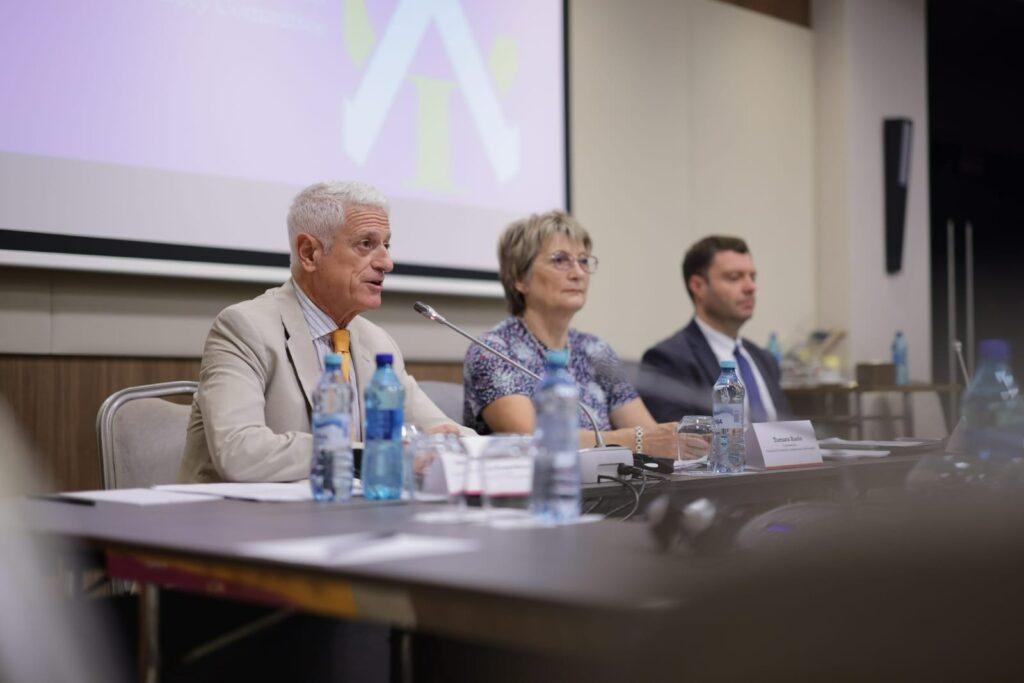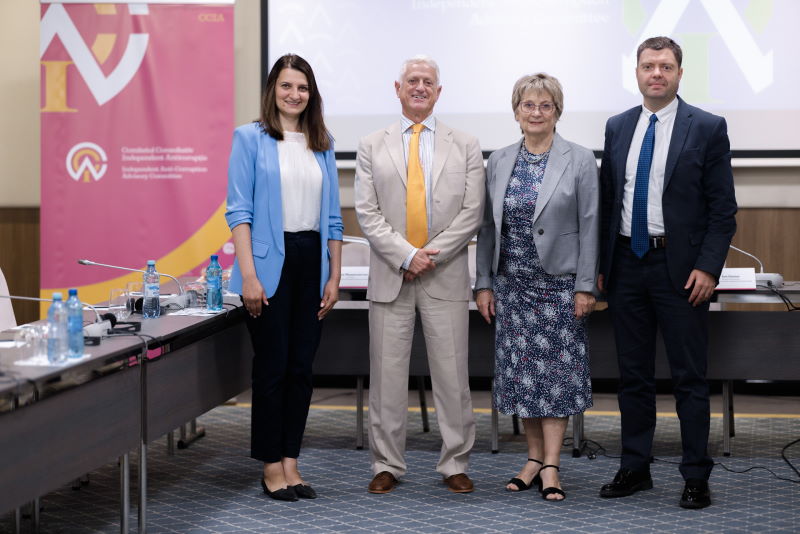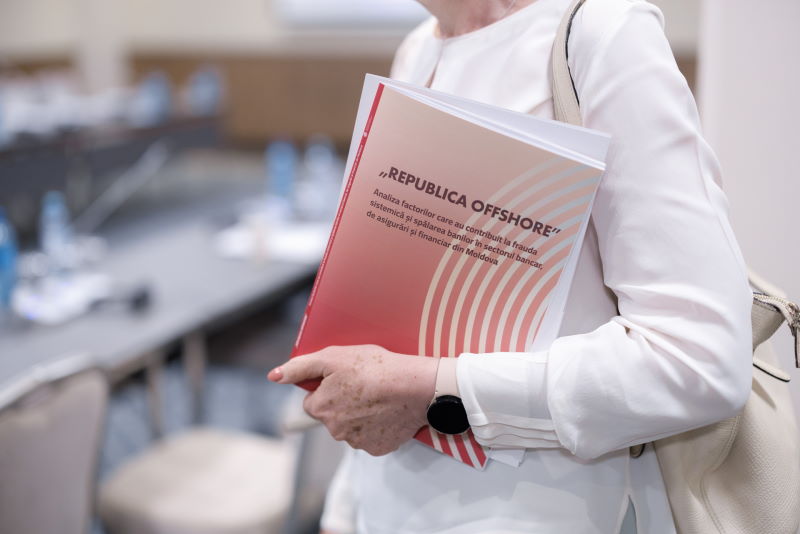Ten years after the theft of $1 billion out of the Moldovan banking system and the laundering of more than $20 billion through Moldovan banks, with the involvement of Moldovan courts, in plain view of law enforcement agencies, while lacking robust oversight mechanisms, the main perpetrators of these fraudulent schemes continue to enjoy freedom. This is one of the takeaways of the report “THE OFFSHORE REPUBLIC”: Review of factors leading to systemic fraud and money laundering in Moldova’s banking, financial and insurance sectors. Read the full report in English here and in Romanian here.
The Independent Anti-Corruption Advisory Committee’s (CCIA) first report presents a comprehensive analysis of corruption in the financial, banking and insurance systems, seen in the broader context of systemic fraud in these sectors, embezzlement and money laundering. The publication illustrates the many ways in which legal amendments, questionable appointments of heads of institutions, lack of genuine independence of oversights institutions and the absence of stronger actions in respect of red flags, resulted in what is called a “captured state”.
The report presents well-grounded findings and provides conclusions and recommendations on strengthening institutional capacity, increasing transparency in their work, changing the legislation, improving oversight mechanisms in the financial, banking, and insurance sectors.
There is also a need to ensure transparent procedures and clear criteria for appointment of governor and deputy governors at the National Bank of Moldova and other state institutions, strengthen early detection of money laundering in relevant institutions, improve civil and criminal recovery by streamlining coordination between agencies, and solidify the international support, etc.

“From its earliest days as a republic, independent of the former Soviet Union until the present, politicians, their patrons and cronies have abused their positions of authority or influence to create flawed systems or undermine functional ones to benefit personally. In some cases, individuals have been so hard-line in their corrupt activities and have benefited so dramatically that the impact – the accumulation of wealth and concentration of power by these individuals, at the expense of the Moldovan people – threatens the entire economy. If they were to expand their power and fully take over control of the economy, they would effectively control the country – the definition of “state capture. The voices of the many would be lost, and along with it democracy, in favor of the voices of the very few”, says James Wasserstrom, CCIA’s co-chair.
James Wasserstrom is an American diplomat who, inter alia, led the fight against corruption in public utilities for four years as senior staff at the UN Administration Mission in Kosovo and who was Advisor on Anti-Corruption in the U.S. Embassy in Afghanistan.

“All is not lost. The government have taken serious and often difficult steps to address egregious deficiencies in the rule of law that exist in each and every element of the law enforcement and the justice system. It will be a long process, with success fraught with uncertainty. Similarly, while there have been some improvements in regulation of the finance sector, obvious flaws remain unaddressed with respect to money laundering and beneficial ownership”, says Tamara Razin, CCIA’s co-chair.
Tamara Razin is an expert in macroeconomics and international finance, with 14 years of work experience at the International Monetary Fund. Previously, she worked for 15 years at the National Bank of Moldova.
This is the first report of the CCIA. The future ones will assess the mandate of anticorruption institutions, the financing of political parties and corruption in state owned enterprises, which will be published during 2022.

The Independent Anti-Corruption Advisory Committee was established in June 2021 by Presidential Decree as a joint independent international and national body. Its main purpose is to analyze systemic corruption issues that cut across Moldovan institutions and improve implementation of anti-corruption measures by the relevant parties. The CCIA will report about the degree of implementation of the recommendations provided by its reports every 6 months or on ad-hoc basis (as necessary).
The CCIA’s mission is to strengthen Moldova’s understanding of general and specific issues with respect to large-scale corruption and enhance its capacity to take appropriate action for greater impact on the life of the citizens of the Republic of Moldova.
In case of differences between English and Romanian translation of the report, English version shall prevail.


